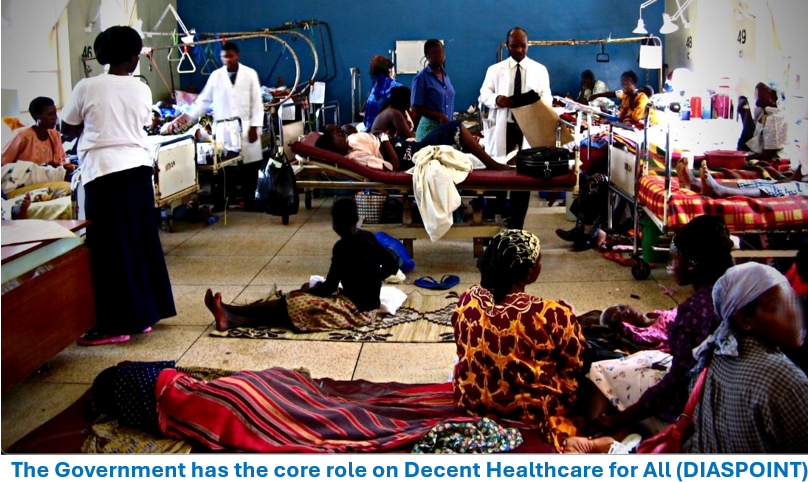Why decent healthcare for all is paramount for a prosperous society
Post By Diaspoint | May 12, 2024

A nation’s ability to generate sustainable economic growth and thrive is inherently linked to the health of its population. Alongside skills and education, a country must invest in the physical and mental well-being of its workforce to facilitate meaningful socio-economic development.
The International Labour Organisation (ILO) has identified a two-way link between productivity and well-being. It states in a working paper that the gains made from interventions aimed at improving the well-being of a population, in turn, generate greater income and government revenues that can boost well-being. This means that “productivity growth and improvements in well-being are closely interconnected and can create positive, mutually reinforcing feedback loops”.
Conversely, absenteeism due to sickness and injury has been identified by researchers as potentially the single most expensive issue impacting business, with estimates suggesting that South African companies are losing up to 17% of their payroll each year due to absenteeism.
Occupational Care South Africa (OCSA) has found that absenteeism costs the country’s economy a staggering R16bn a year, while the Capital Review puts this figure at an even higher estimated of over R19bn annually. This equates to about 15% of employees being absent on any given day.
Inevitably, absenteeism also affects other employees in the workplace who may have to make up for the work not performed by absent employees, which also lowers overall productivity. This also impacts the productivity of managers who must spend time adjusting workflows to keep things moving.
Read More from original source
